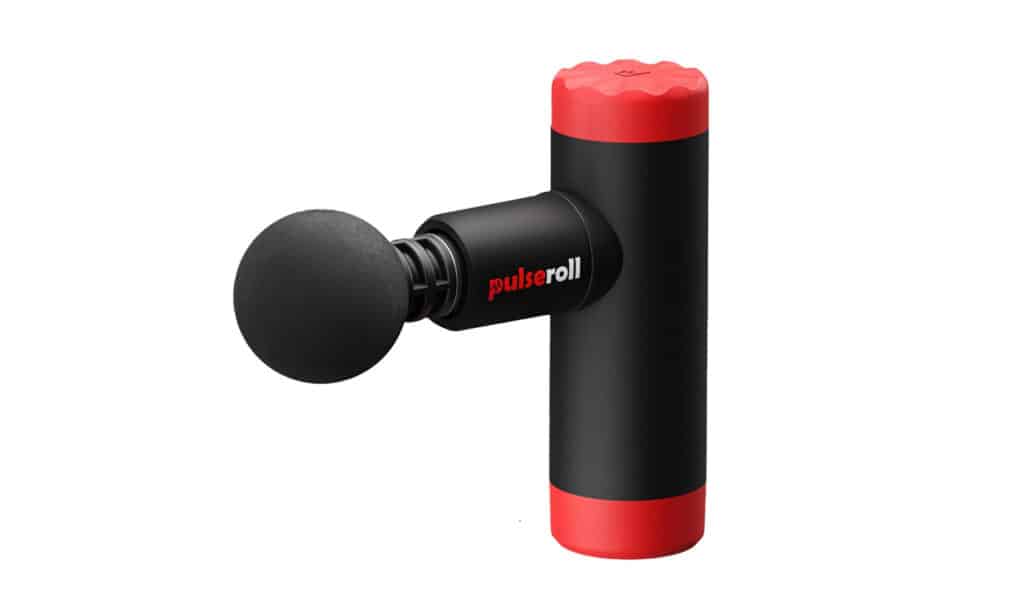


When it comes to running, many people often ask: “How long does it take to run a kilometre?” The answer depends on various factors such as fitness level, terrain, age and gender. In this article, we will cover average times, factors affecting your speed, and tips to improve your time.
Running pace is a crucial aspect of running, as it determines how fast or slow you complete a certain distance. Understanding your running pace is essential to set realistic goals, track progress, and optimise your training. A good running pace is individual and varies based on age, fitness level, and experience.
Your running pace is essentially the time it takes to cover a known distance, typically measured in minutes per kilometre. For instance, if you run one kilometre in 6 minutes, your pace is 6 minutes per kilometre. This metric helps you gauge your performance and set benchmarks for improvement.
Factors like age and fitness level play a significant role in determining your pace. Younger runners or those with higher fitness levels generally have faster paces. However, it’s important to remember that pace is highly individual. What might be a fast pace for one runner could be slow for another, and vice versa. The key is to focus on your own progress and set goals that are tailored to your abilities.
Knowing average times for running a kilometre helps set realistic goals and measure progress. Beginners typically take about 13 minutes to run 1 km, which is a solid starting point for building stamina and endurance. With consistent practice and improved fitness, your times will naturally get faster.
Intermediate runners usually finish 1 km in about 7 to 8 minutes. Experienced runners, who have trained for years or compete regularly, can complete a kilometre in under 3 minutes, with under 5 minutes being a strong time.
These benchmarks provide a reference to gauge your performance and motivate you to push your limits.
Several factors affect how long it takes to run a kilometre, including age, gender, fitness level, and external conditions like terrain and weather. Recognising these can help pinpoint areas for improvement and adjust training accordingly.
Examining these factors can reveal how they impact your performance.
Running speeds generally decline with age due to muscle loss, joint health issues, and reduced endurance. A person in their twenties will likely run faster than someone in their fifties. However, older runners can still improve or maintain a good pace by understanding their bodies and adapting their training accordingly, even if they may run slower than younger runners.
Gender also affects running times. Men generally run faster than women over a kilometre due to physiological differences like muscle mass and lung capacity. Elite male runners can finish a kilometre in about 2:30, while elite female runners take around 3 minutes.
These differences are natural, but dedicated training can lead to significant improvements for both men and women.
Fitness level significantly impacts running performance. Factors like VO2 max (maximum oxygen use during intense exercise) and lactate threshold (intensity at which lactate builds up) influence speed and endurance. Higher fitness levels allow for sustaining faster paces more easily.
Regular running practice helps establish a routine and train by gradually increasing distance and speed. Setting and tracking achievable goals can lead to steady improvements, including a known distance. For instance, aiming to reduce your kilometre time by a minute in a month can be achieved through consistent practice and incremental goals.
Terrain greatly affects running speed. Flat surfaces are generally faster and less taxing compared to hilly or uneven terrains. Running on a trail with many elevation changes will likely slow your pace due to the increased effort required.
Weather conditions also play a significant role. Extreme heat, humidity, wind, or rain can hinder performance and make it harder to maintain your usual pace. Adverse weather adds another layer of challenge, so consider these factors when planning your runs.
Calculating your kilometre pace is straightforward and provides valuable insights into your performance.
To determine your pace per kilometre, simply use the formula:
Pace (sec/km) = Time (sec)/Distance (km)
For instance, if you run one kilometre in 6 minutes, your pace is 6 minutes per kilometre, equivalent to a speed of 10 km/h.
A running pace calculator, such as ours here, helps by determining your average speed based on distance and time. This information is useful for planning training sessions and setting realistic goals.
A pace calculator also predicts race completion times and determines the speed needed for specific finishes. It breaks down your pace into splits, allowing you to monitor progress and make adjustments as needed. This ensures you’re on track to meet your goals, whether training for a 5k, half marathon, or other race distances and races.
Running distance and time are closely related, as the distance you cover is directly proportional to the time you take to complete it. To calculate your running pace, you need to know the distance you’ve covered and the time it took to complete it. A pace calculator can be a useful tool to calculate your running pace, especially for longer distances.
For example, if you run 5 kilometres in 30 minutes, your pace is 6 minutes per kilometre. Using a pace calculator, you can easily determine your average speed and set goals for future runs. This is particularly helpful for longer distances, such as a half marathon, where maintaining a consistent pace is crucial for achieving your target time.
Understanding the relationship between distance and time allows you to plan your training sessions more effectively. By knowing your pace, you can adjust your runs to focus on speed, endurance, or a combination of both, depending on your goals.
Improving kilometre times requires a combination of training methods. To effectively train, it is crucial to adopt a structured approach that includes gradually increasing walking distance and improving walking form. Incorporating interval training, strength training, and consistent practice can significantly enhance running performance.
Let’s explore these training techniques in more detail.
Interval training alternates high-intensity running with recovery periods, effectively boosting speed and endurance. For example, running fast for one minute, followed by a two-minute recovery jog, repeated several times, helps your body adapt to higher speeds and improves running form.
Experienced runners use interval training for competitions like half marathons or marathons. It’s also beneficial for beginners to improve their fitness and pace. Pushing limits during high-intensity intervals and allowing recovery builds physical and mental stamina for longer distances.
Strength training is essential for improving kilometre times. Exercises like squats and lunges strengthen muscles used in running, enhancing running mechanics and leading to faster speeds.
Besides improving speed, strength training helps prevent injuries. Stronger muscles absorb running impact better, reducing injury risk. Including strength exercises in your routine enhances overall performance and running efficiency.
Consistency is crucial in running. Regular practice builds endurance and speed. Tracking progress and setting achievable goals lead to steady kilometre time improvements. For instance, aiming to run slightly faster each week maintains focus and motivation.
Including interval training and strength exercises enhances progress further. Improvement requires time and dedication. Stay committed to training for better performance and faster kilometre times.
Recovery is essential in any training regimen. It prevents injuries and ensures consistent performance. Incorporating effective recovery techniques, such as light exercises and proper nutrition, significantly improves overall running performance.
Strength training exercises like lunges and squats improve muscle strength and contribute to better recovery by enhancing muscle resilience. Consuming foods rich in omega-3 fatty acids, like salmon, reduces post-exercise inflammation, while whole grains provide necessary recovery energy.
A balanced diet supports training and recovery, helping you remain injury-free and perform at your best.

Nutrition is crucial for running performance and recovery. Consuming a snack 1 to 2 hours before running boosts energy and enhances workouts. For shorter runs, a 100-300 calorie snack suffices, while longer runs may require 300-500 calories, focusing on complex carbohydrates, protein, and healthy fats.
Post-run nutrition is equally important. Here are some key points to consider:
Selecting the right gear, especially running shoes, is crucial for comfort and performance. Choose shoes tailored to the terrain you plan to run on. Road running shoes with cushioning are ideal for pavement, while trail running shoes offer better grip and support for uneven surfaces.
The distance you plan to run also influences shoe choice. Longer distances require more cushioning to absorb impact, while shorter runs benefit from more flexible shoes. Trying on shoes before purchase ensures the right fit for different distances, significantly enhancing comfort and efficiency.
The right gear makes a significant difference in training and performance.
Setting realistic goals is essential to improve your running pace. Start by setting specific, measurable, achievable, relevant, and time-bound (SMART) goals. For example, if you’re a beginner, your goal might be to run a certain distance without stopping, while an experienced runner might aim to improve their pace by a certain percentage. Make sure to set goals that are challenging yet achievable, and break them down into smaller, manageable chunks.
For beginners, a realistic goal might be to run 1 kilometre without stopping or to reduce your kilometre time by a minute over a month. Experienced runners might aim to shave seconds off their pace or to complete a half marathon in a specific time. The key is to set goals that push you to improve while still being attainable.
Breaking down larger goals into smaller milestones can help keep you motivated and focused. For instance, if your goal is to run a 5k in under 25 minutes, start by aiming to run 1 kilometre in under 5 minutes, then gradually increase the distance while maintaining that pace.
Getting started with running can be intimidating, but with a clear understanding of your running pace, you can set yourself up for success. Start by recording your runs, including the distance, time, and pace. Use a pace calculator or a running app to track your progress and identify areas for improvement. Begin with short distances and gradually increase them as you build endurance. Incorporate strength training and flexibility exercises to improve your overall running efficiency. Most importantly, listen to your body and rest when needed, as overtraining can lead to injury.
For beginners, it’s important to start slow and gradually build up your running distance and speed. Begin with short, manageable runs and focus on maintaining a steady pace. As you become more comfortable, you can start to increase the distance and incorporate different types of training, such as interval training and strength exercises, to enhance your performance.
Remember, consistency is key. Regular practice, combined with proper nutrition and effective recovery techniques, will help you improve your running pace and achieve your goals. Stay committed, track your progress, and celebrate your achievements along the way.
Here at Coach the Run, we offer a wide range of 5K training plans for beginners, intermediate, and advanced runners. These plans are designed to help you train effectively by gradually increasing your walking distance and improving your form, ensuring you are well-prepared for a 5k race.
These plans include interval and tempo runs, strength exercises, and rest days to balance training and recovery. Designed for speed work and interval training, these plans are built to boost your pace and help you shave time off your kilometre.
Whether you’re new to running or aiming to improve your personal best, Coach the Run’s 5k training plans can help you reach your goals. With consistent practice, proper nutrition, and effective recovery techniques, you’ll be well on your way to achieving faster kilometre times and reaching new milestones in your running journey.
What is a good time for beginners to run a kilometre?
Aiming for around 13 minutes to run a kilometre is a solid goal for beginners. Keep moving, and you’ll see progress!
How does age affect running speed?
Running speed generally declines after age 35 as muscle loss and reduced endurance take their toll. Stay active and focus on strength training to maintain your performance!
How can I calculate my running pace?
To calculate your running pace, simply divide your total running time by the distance you covered. This straightforward method will empower you to track your performance and set goals for improvement!
What are some effective training methods to improve my kilometre time?
To improve your kilometre time, focus on interval training, strength training, and consistent practice; these techniques will boost your speed and endurance. Embrace the journey, and you’ll see the results!
Why is recovery important for runners?
Recovery is crucial for runners as it helps prevent injuries and reduces muscle soreness, ensuring you can perform consistently. Embrace recovery days with proper nutrition and light exercises to boost your running game!
Running consistently, incorporating effective recovery techniques, and consuming a balanced diet are crucial for improving running performance. The right gear, such as properly fitted shoes, also plays a significant role in comfort and efficiency while training.
With Coach the Run’s 5k training plans and dedication to practice, you’ll be well on your way to achieving faster kilometre times and reaching new milestones in your running journey. Download your plan today and start seeing progress!
Remember to stay committed, set achievable goals, and embrace the process of becoming a better runner.
Join our mailing list to stay up to date with the latest UK running events, training tips, and exclusive offers on running products. Rest assured, we value your privacy and would never dream of selling your address. Sign up now…
Share this article
Running might seem daunting for overweight and out-of-shape individuals, but it’s an effective way to...
With autumn nights drawing in, running safely during a nighttime run has become an important...
I’ve seen many friends post up runs on Strava during marathon training, calling it a...
Hi Mike, this year, I ran two half marathons (1:45 and 1:38) and a full...
Well, yes and no. That is, I did it, and that I know lots of...
Weight loss is a common goal for many runners, and deciding the ideal running frequency...
We’re here to make sure you’re up-to-date with the latest running tips, events and product discounts – we’ve always got your back! Rest assured, we value your privacy and would never dream of selling your address.
BONUS: Sign up today and receive a FREE code for our Sub-4-Hour Marathon Plan
Your privacy settings
Manage Consent Preferences
Necessary
Analytics
Embedded Videos
Marketing
Facebook Advanced Matching
Facebook CAPI